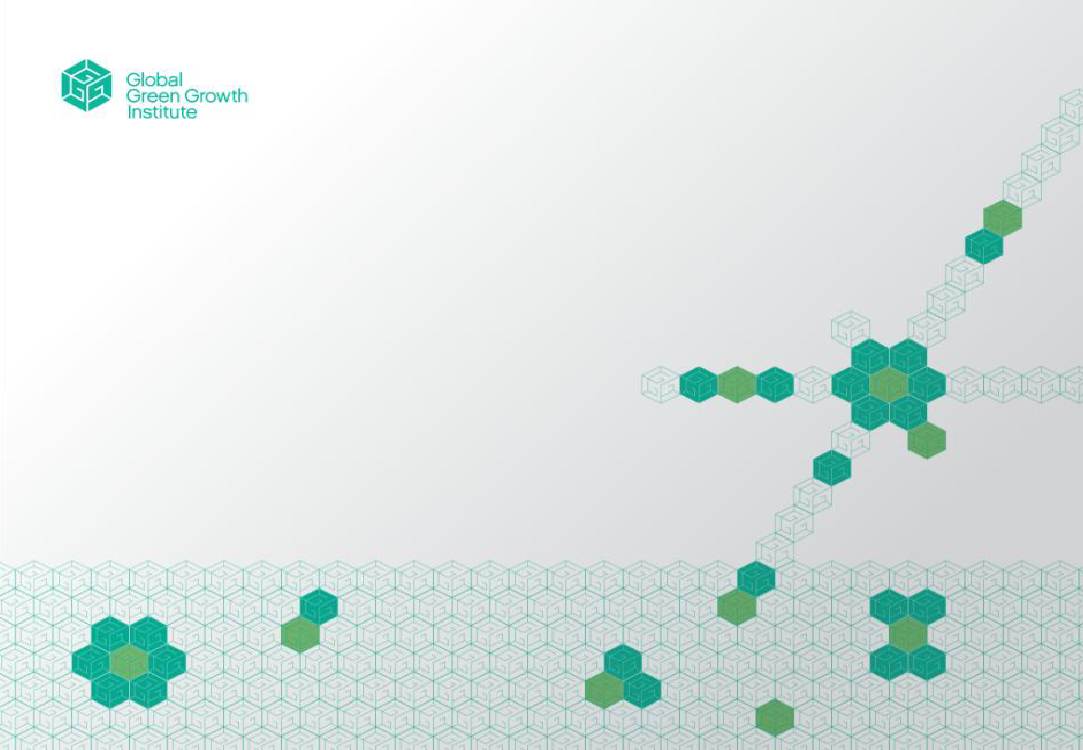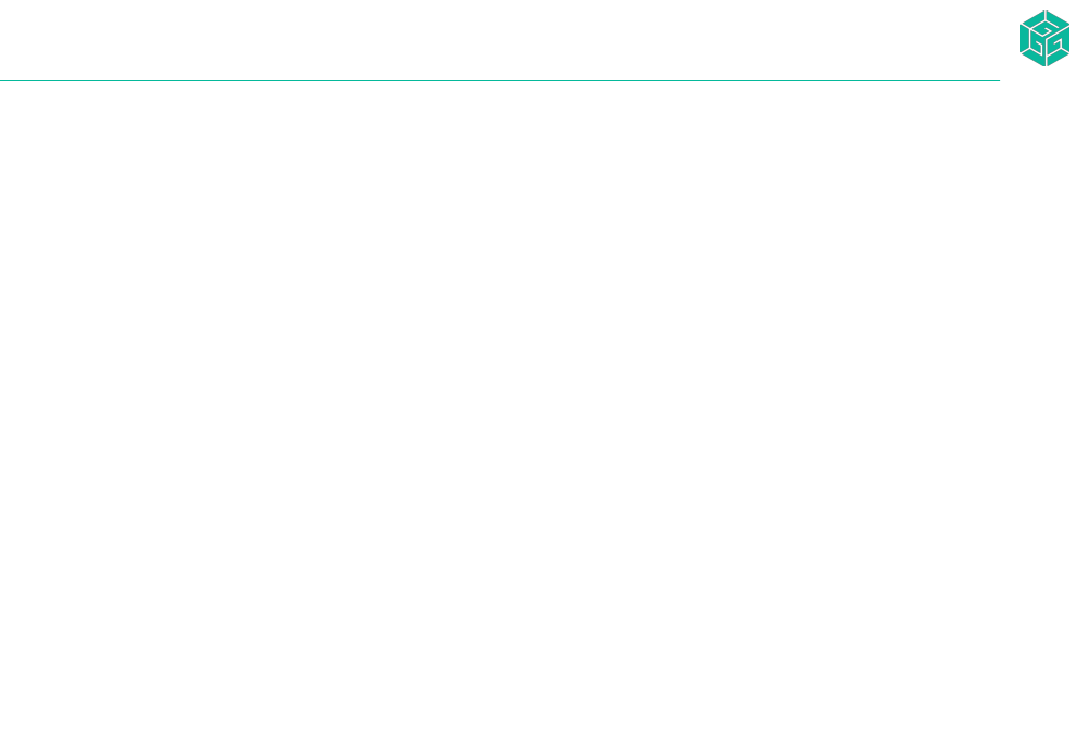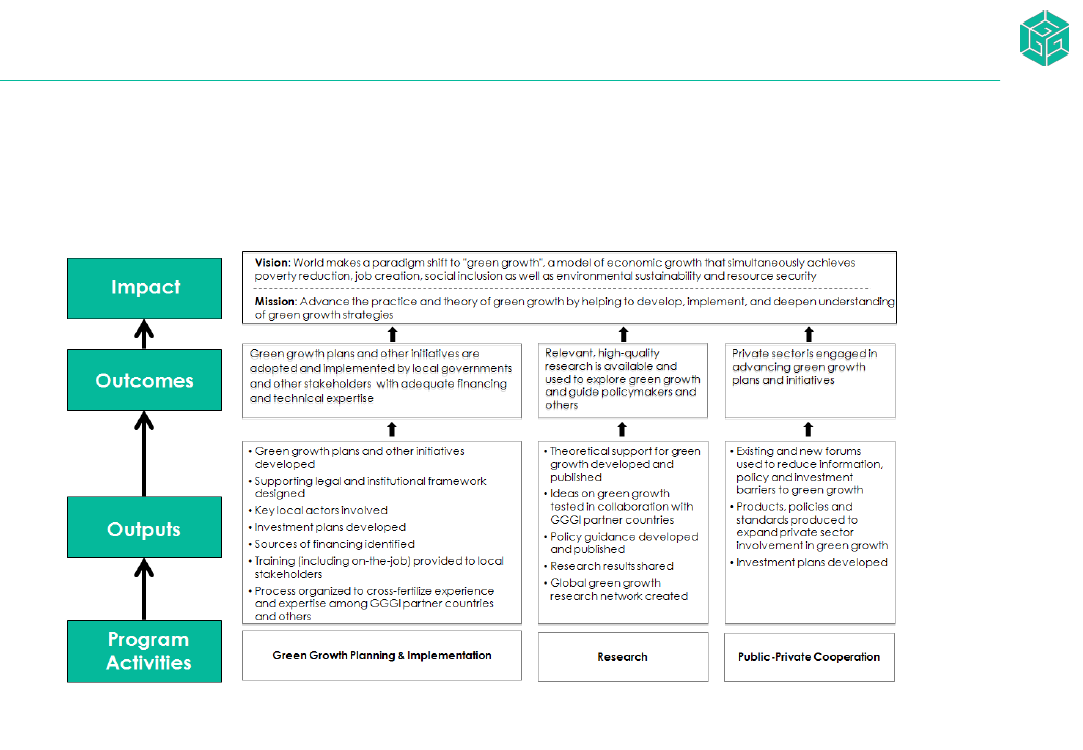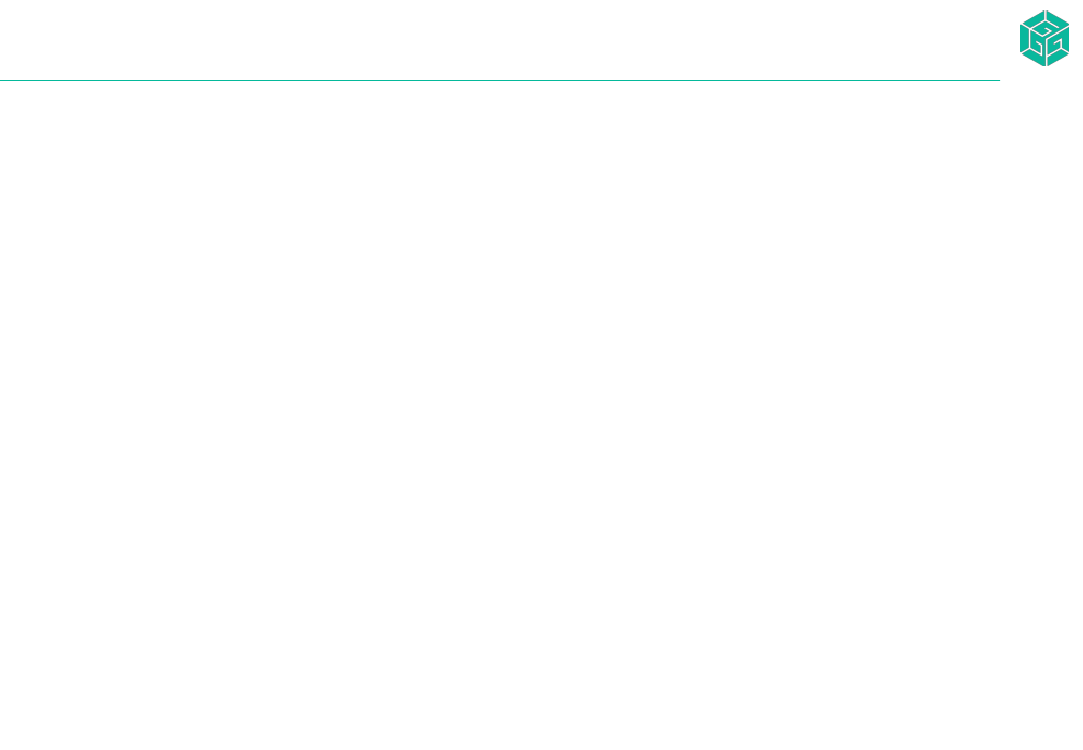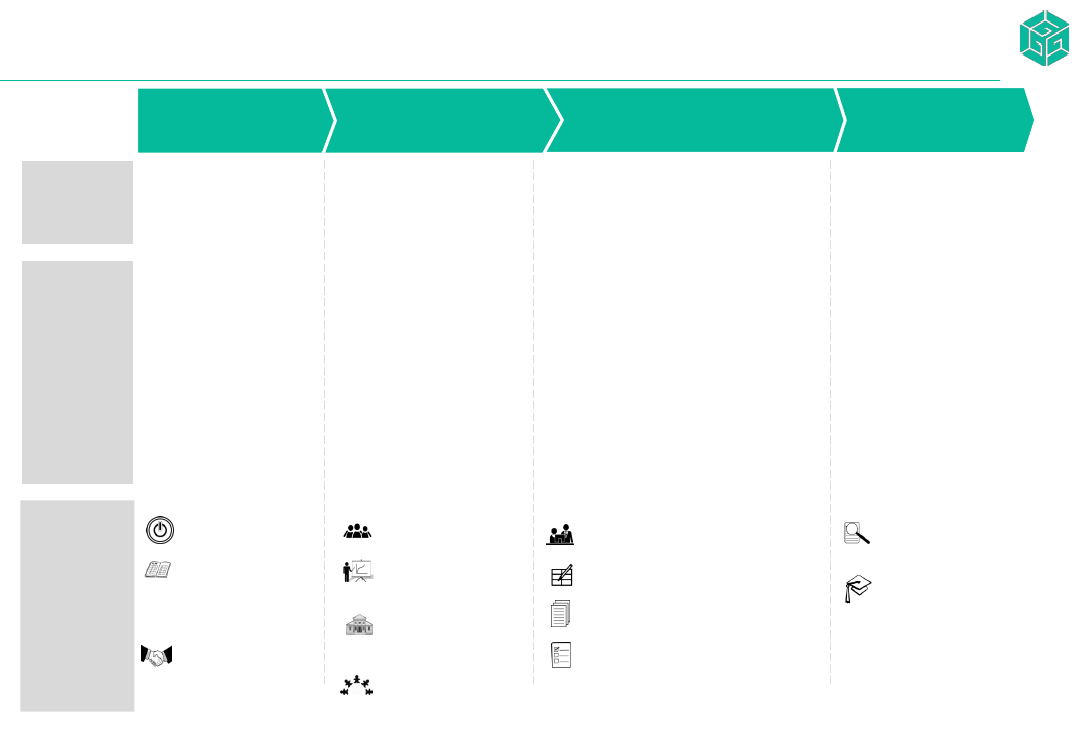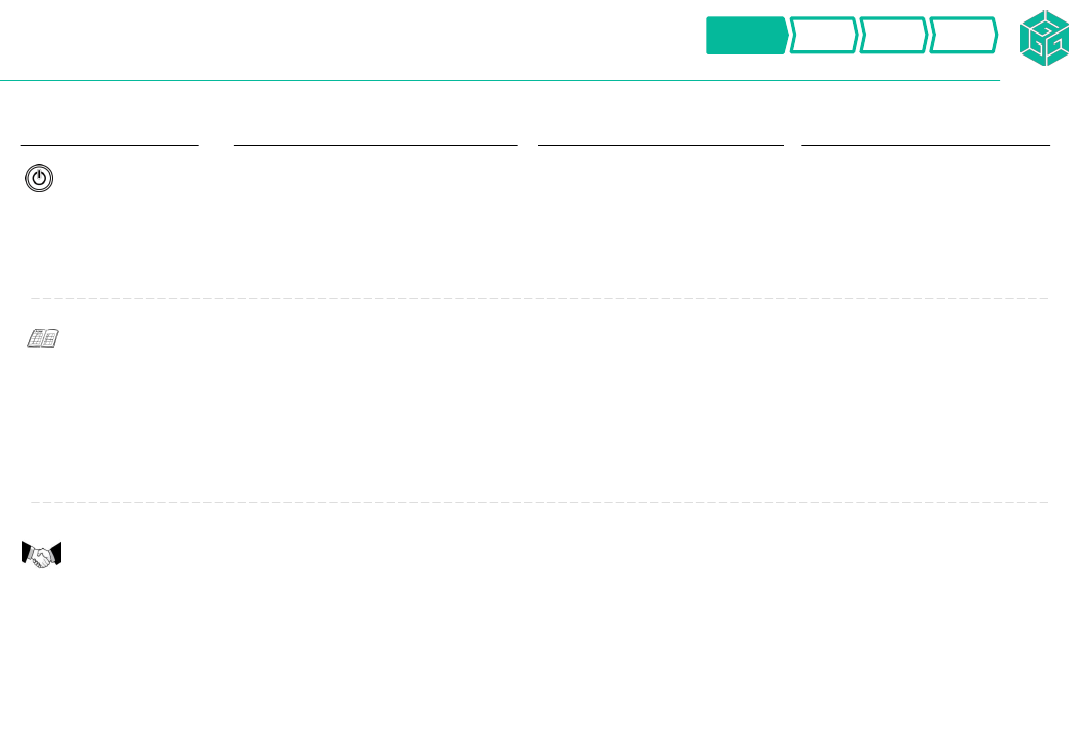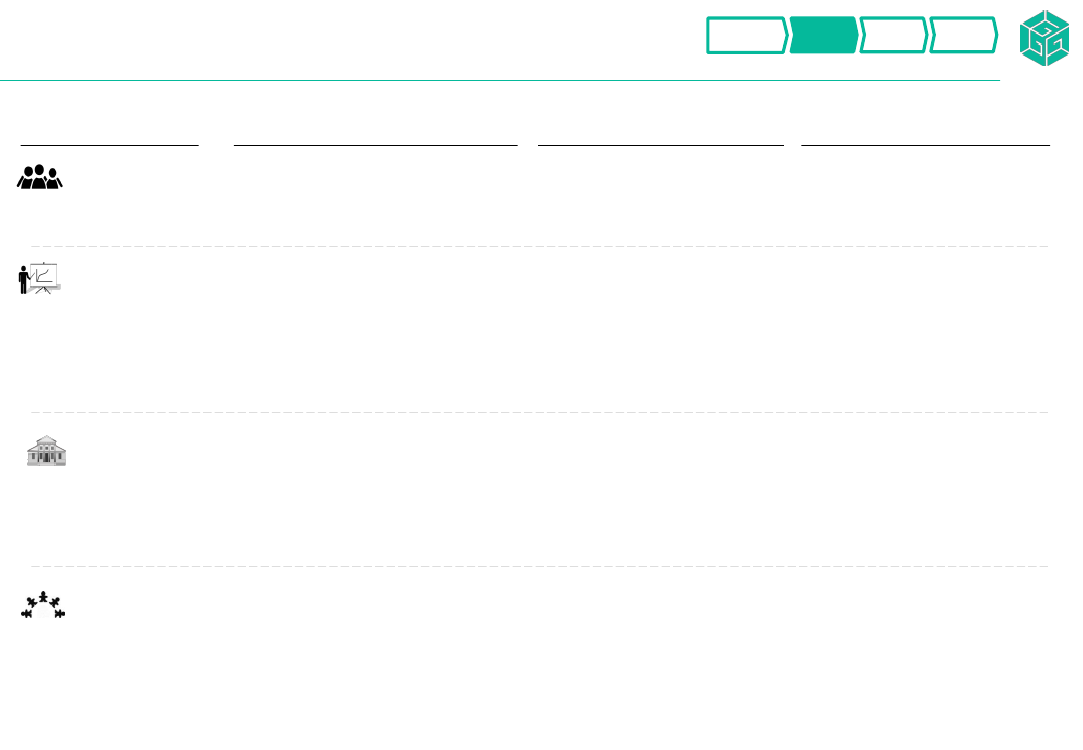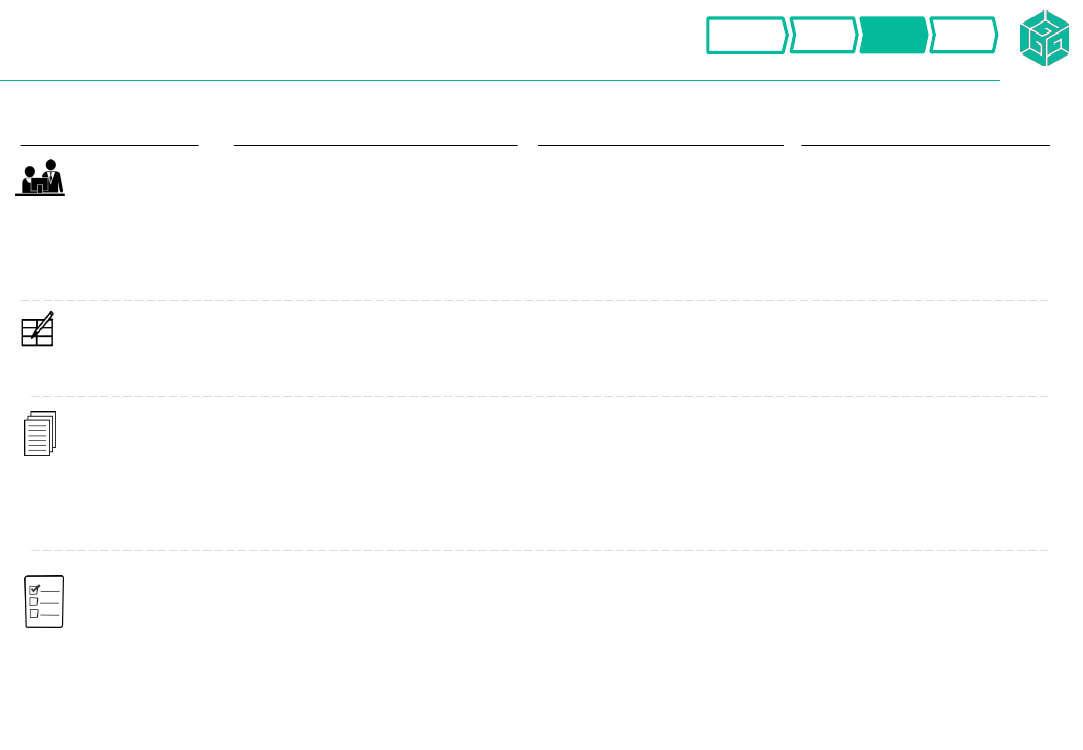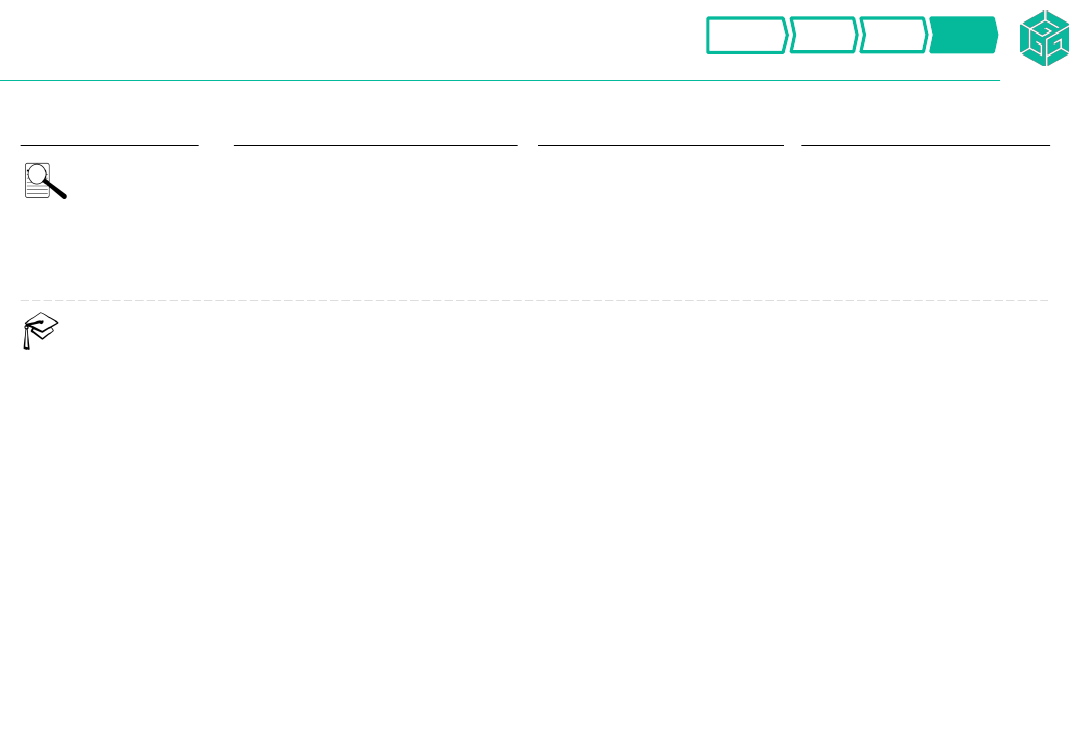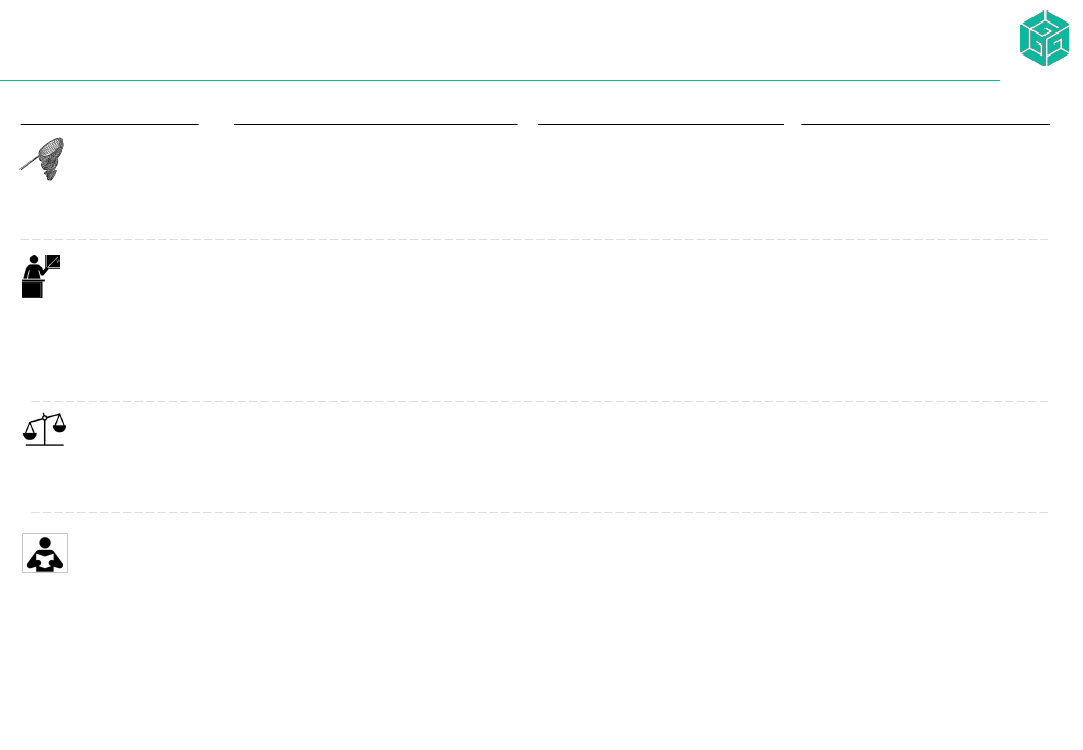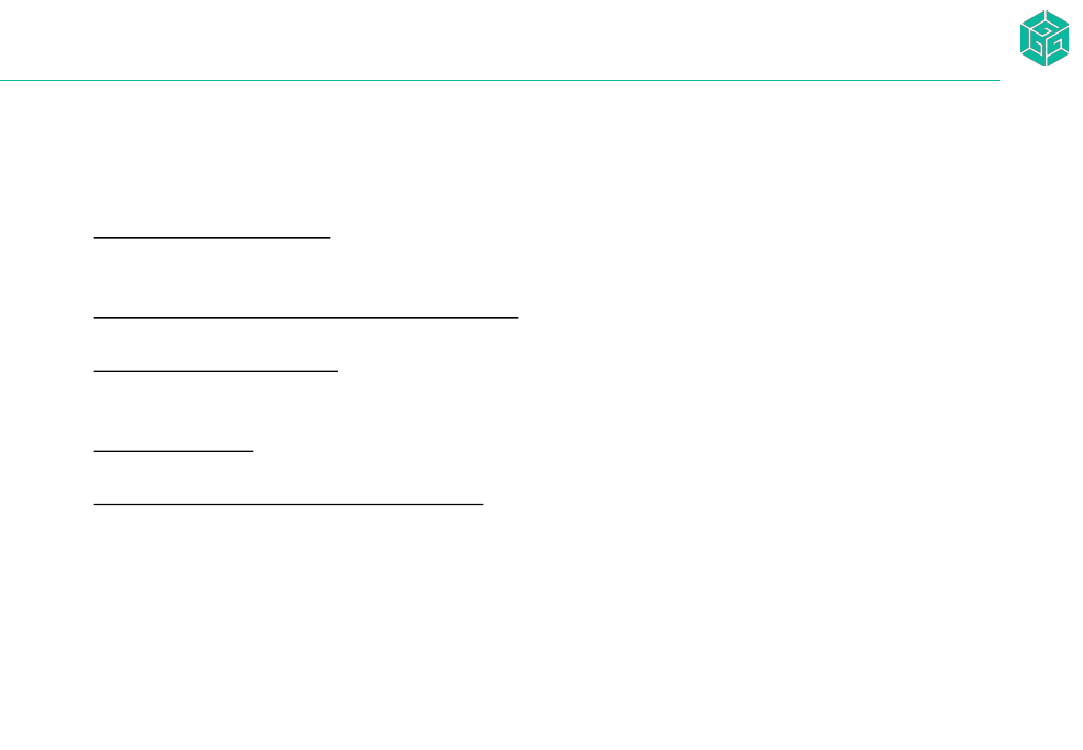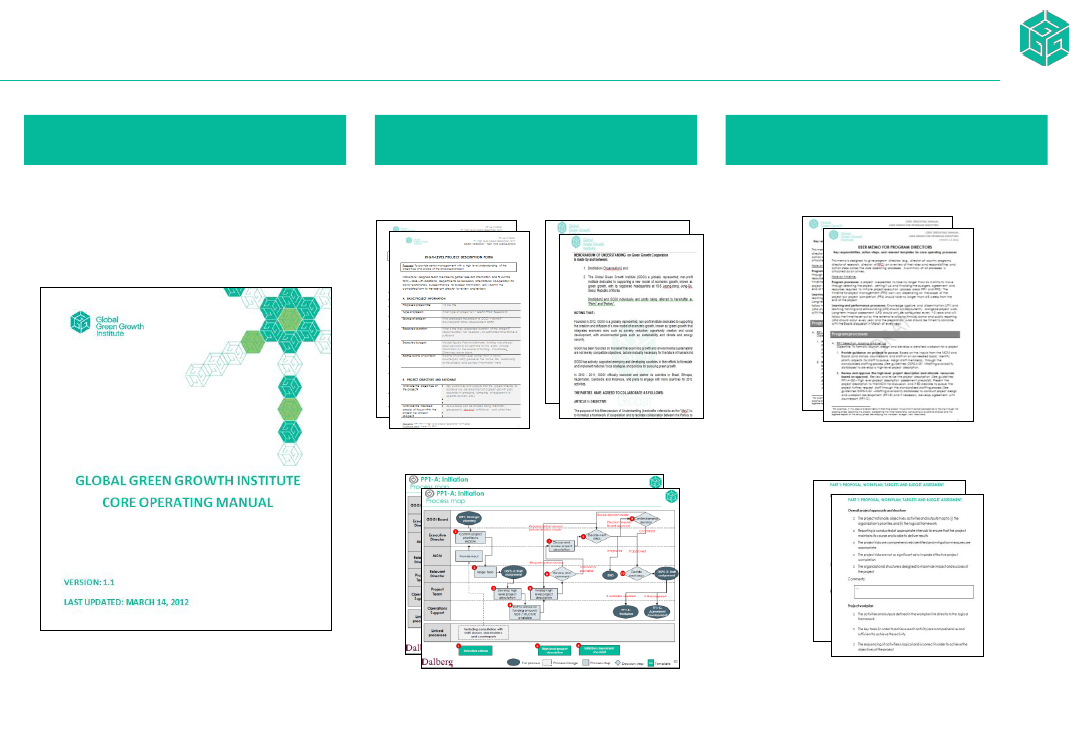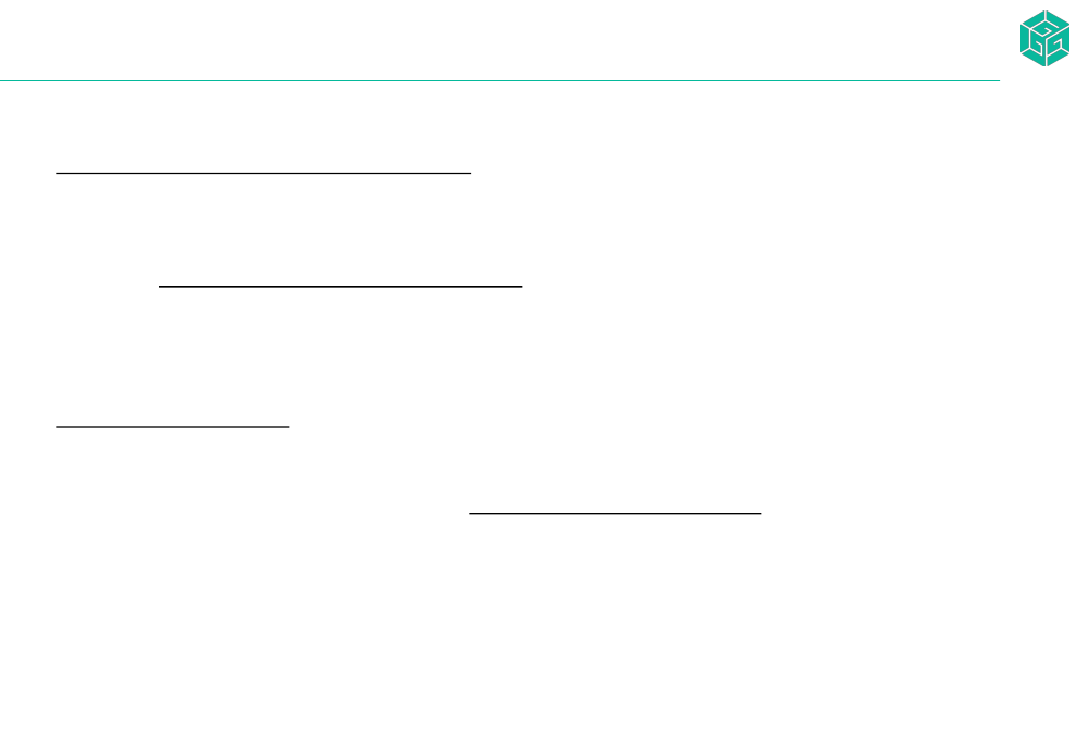Udenrigsudvalget 2013-14, Finansudvalget 2013-14, Klima-, Energi- og Bygningsudvalget 2013-14
URU Alm.del Bilag 42, FIU Alm.del Bilag 26, KEB Alm.del Bilag 74
Offentligt
Results-based management and coreoperating processes at GGGIBoard PresentationMay 2012
Executive SummaryGGGI adopted a results-based management approach to align the organization and its activities tofocus on improving results. Results-based management provides GGGI with a coherent framework forstrategic planning and programmatic activities based on learning and accountability. GGGI’s Theory ofChange is now encoded in a logical framework.GGGI has designed and developed a set of core operating processes to support and strengthen itsresults-based management. These processes provide clarity and structure on decisions-makingthroughout a project cycle and have two broad categories: Program Processes (PP) and Learning andPerformance Processes (LPP).PP define the mechanics from scoping, through preparation and planning, execution, monitoring,culminating in the closing and completion of a project. LPP, one of the key components to establishGGGI as a learning organization, facilitate the dissemination of knowledge, training, skills and lessonsfrom project work within the organization and with relevant stakeholders outside of GGGI.GGGI management and staff are both designer and users of these core operating processes. Incollaboration with Dalberg Global Development Advisors, GGGI produced a suite of materials to roll-outthese processes, including a comprehensive manual, practical toolkit (e.g., forms and process maps),and user-friendly guidance (e.g., user memos and checklists). Country program directors, and researchdirector in the future, have the overall responsibility for the processes’ design, structure, implementationand roll-out.May 16, 2012 is the “launch date” of GGGI’s core operating processes. New programs will adhere tothe latest processes afterwards. The launch date also coincides with a full-day mandatory training forGGGI staff, the last session of a series of training workshops since February 2012.1
GGGI adopted a results-based management approach to align theorganization and its activities to focus on improving results•Results-based managementprovides GGGI with a coherent framework for strategicplanning and programmatic activities based on learning and accountability•A Theory of Change is encoded in a logical framework:
2
GGGI has designed and developed a set of core operating processes tosupport and strengthen its results-based management•Core operating processes enable results-based management by providing clarity andstructure on decisions-making throughout a project cycle
•Enable projects to systematically develop and track indicators from the inceptionfor learning and reporting•Codify the mechanics of project management with procedures on how to select,plan, deploy, manage, monitor, complete and learn from a project•Apply to all types of programs (green growth planning and implementation,research and public-private cooperation)•There are two broad categories: Program Processes (PP) and Learning andPerformance Processes (LPP)•PP define the mechanics from scoping, through preparation and planning,execution, monitoring, culminating in the closing and completion of a project•LPP facilitate the dissemination of knowledge, training, skills and lessons from projectwork within the organization and with relevant stakeholders outside of GGGI•These process arenotintended to restrain project execution and day-to-dayactivities, which are at the purview of project managers•GGGI management and staff are both designer and users of these processes3
Overview of GGGI’s Programming Processes (PP)PP1: Scoping andset-upDesign, detail andformally launch a newproject
PP2: Project resourcedeploymentIdentify and allocate thehuman resources andlocal partnershipsneeded for a project
PP3: Project managementand monitoring
PP4: ProjectcompletionEvaluate a project upon itscompletion and ensure thatownership is effectivelytransitioned to counterpart
Objective
Provide a framework to manage theproject resources and monitor projectprogress and results
▪▪Activities
▪▪▪
Identify and selectprojects to pursueDefine project scope,project design andidentify keycounterpartsDevelop workplanAllocate budgetaryresourcesDraft and finalizeagreement withcounterpartScopingProject design andworkplandevelopment (set-up)Counterpartagreementdevelopment &approval
▪▪▪
Allocate GGGI staffbased on skills andavailabilityDraft standard invitationto tender to identifyexternal consultantDraft partnershipagreement with localinstitutional partner
▪▪▪▪
Monitor project progress and adjustproject course as necessaryCollect indicators as laid out in theproject logframeReport every 2-3 months on theproject progress against theindicatorsReview interim/final outputs (i.e., aconsultant deliverable) and ensure itmeets expectations
▪
▪
Conduct an internalevaluation to assessproject results andlearningsDraft a transition reportand results monitoringguide in order tofacilitate transition ofownership to theproject counterpart
Staff deploymentConsultantdeploymentLocal institutionalpartnerdeployment
Management of resources
End-of-project evaluationTransition of project tocounterpart
Collection of indicatorsRegularreportingReview of final outputs
Associatedprocesses
Staff assignment*
*OSP5-X: Staff assignmentis an operations support process. It is included because of its close linkage to PP1-A and PP2-A.
PP1: Scoping and set upProcess overview and key management rolesProcess nameScoping
PP1
DescriptionBased on strategic planningprocess, conduct research toscope potential projects andonce approved, allocateresources to design, plan andset it upConduct detailed research andanalysis on a project in order todevelop a develop andapprove a project’s logicalframework, workplan andbudget in order to launch toproject
Documents produced•Project scope anddescription*
Key management rolesReview and approveproject scope anddescription in order tolaunch project set-upphase
Project designand workplandevelopment(set-up)
•Project proposal* toinclude:- Project logframe*- Project workplan*- Budget*- Targets for resultsindicators*
Review and approveproject logframe, detailedproject proposal andworkplan, budgets andtargets in order to launchsubstantive project work
Counterpartagreementdevelopment &approval*
Draft, approve and sign aformal agreement with theprimary counterpart
•Completed MoU
Review, approve and signMoU to formalizerelationship betweenGGGI and counterpart
* Mandatory forms for all projects
PP2: Project resource deploymentProcess overview and key management rolesProcess nameStaffdeployment
PP2
DescriptionWork through HR staffassignment process to assignstaff to work on a projectSubmit an invitation to tender foran external consultant and workthrough HR/procurementprocesses to identify andcontract a well qualifiedcandidateIdentify a local institutionalpartner (i.e., research institute,university, etc.) and draft,approve and sign anagreement to formalize therelationshipIdentify and assign staff toprojects based on specificrequests, availability andspecific skills required (HRprocess, not a program process)
Documents producedN/A
Key management rolesN/A
Consultantdeployment
•Standard invitation totender (ITT) to include:- Standard financial forms- Standard technicalforms•Assessment criteria for ITT•Partnership agreement
See procurementguidelines
Localinstitutionalpartnerdeployment
If requested by therelevant director,management team toreview and approvepartnership agreementReview and decide onstaffing assignments ifthere is a conflict inrequests or if requestedstaff is not available
Staffassignment
N/A
PP3: Project management and monitoringProcess overview and key management rolesProcess nameManagementof resources
PP3
DescriptionMonitor project progress andtake any necessary decisions toensure timely project delivery
Documents produced
Key management roles
•Task assignments (optional) If project is non-performing,•Standard progress updatereview director’sform (optional)recommendation toterminate project. Ifconfirmed, inform Board ofdecision.•Completed datacollection form*N/A
Collection ofindicators
Collect indicators regularly tomeasure project results andoutcomes, per the logicalframeworkDraft and review reports atfrequent intervals outliningproject progress in achievingmilestones
Regularreporting
•Quarterly report*
If project is non-performing,review director’srecommendation toterminate project. Ifconfirmed, inform Board ofdecision.Review decision toterminate contract t ifdirector recommendsbased on review of finaloutputs. If confirmed,inform Board of decision.
Review of finaloutputs
Review final outputs of projectteam to ensure they meetexpectations
N/A
* Mandatory forms for all projects
PP4: Project completionProcess overview and key management rolesProcess nameEnd-of-projectevaluation
PP4
DescriptionInternally evaluate a project atits completion to assess projectprogress and results achieved
Documents produced•Evaluation report*
Key management rolesReview report oncefinalized, discuss lessonslearned, and incorporatethem into the strategicplanning processJointly review the finaltransition report with thecounterpart and identifyareas for furthercollaboration andcooperation
Transition ofproject tocounterpart
Guide the transition of a projectto a counterpart (or partner),with a focus on ensuring thatnecessary indicators arecollected in the long-term
•Transition report andresults monitoring guide(optional)
* Mandatory forms for all projects
Overview of GGGI’s Learning and Performance Processes (LPP)Process nameInternalknowledgecapture &disseminationLearning,training andskills buildingDescriptionShare relevant knowledgeproducts and pieces within theorganization to encouragecross-project learningsDevelop the skills and contentknowledge of staff through adefined learning agenda whichis aligned with the organization’spriorities
Documents produced•Project documents,research, etc.
Key management rolesN/A
•Learning agenda andcalendar•Learning report andrecommendations (toinclude summary ofindividual evaluations)•Impact assessment
Participate in and leadtraining activitiesReview annual learningreport & include lessons instrategic planningReview final assessmentreport and draft reactionsand decide how best todisseminate key learningsReview and approve theBoard report and draft anote outlining GGGI’s rolein the sector andupcoming strategy toshare with Board.Based on edits from Boarddiscussion, review andapprove final report(s)
Long-termimpactassessmentAnnual donorand publicreporting
Hire an external firm/individualto conduct in-depth impactassessment of projects orportfolio of projectsDevelop annual donor-specificand public domain reportswhich present GGGI’s activities,results achieved and a strategicview for the coming year
•Project-level report*•Board report* (to beseparated into a publicdomain report and donorreport)
* Mandatory forms for all projects
Notes on Learning and Performance Processes (LPP)GGGI’s learning and performance processes are only one of the components needed todevelop a learning organization. Other components include:a. Clear vision and goals for organizational learning and a “champion” to take itforwardb. Incentives in professional development to encourage learningc. A dedicated resource focused on developing and implementing the learningagenda in the form of a “learning manager” (or a similar position)d. IT infrastructure to support knowledge sharing and disseminatione. Established and accessible networks within and outside the organization toencourage learning
10
GGGI staff, in collaboration with Dalberg Global Development Advisors,produced a suite of materials to roll-out its core operating processesComprehensive ManualPractical ToolkitFormsCore Operating ProcessManualReferences
User-friendly GuidanceUser Memos
Process maps
Checklists
11
May 16, 2012 is the “launch date” of GGGI’s core operating processes
•New programs will adhere to the latest core operating processes after the “launch date”
•Directors of Country Program, Myung Kyoon Lee (Seoul) and Mattia Romani (London),have the overall responsibility and authority for the design, structure, implementation androll-out of the core operating processes
•Two Senior Program Managers (SPMs), Joo Sueb Lee (Seoul) and Jason Eis (London), aremanaging the roll-out of these processes
•The launch date also coincides with a full-day mandatory training for GGGI staff, the lastsession of a series of training workshops since February 2012
Note: In the future, Research Director will share the responsibility on core operating processes with Country Program Directors.The Country Program Directors and SPMs will deliver the full-day training on May 16, 2012. An expert is also invited toshare core operating processes implementation experiences from other organizations.
12
